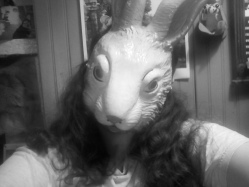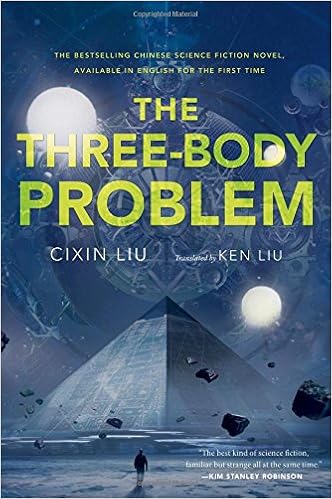“It’s not always there,” Kelly said.
Rose looked at her niece. “What isn’t always there?”
“The room next to mine. It’s not there all the time.”
Rose regretted her willingness to babysit that night. She had only said yes because her sister had finally decided to move closer to Rose. It would be a good thing to get to know Kelly who she hadn’t seen since Kelly was just a baby. Her sister had lived so far away for so long, moving not long after their parents’ death. This was Rose’s whole family now, after all.
Kelly was quiet, much less buoyant than how Rose expected a nine year old to act, rarely saying much more than a word. The three of them went out to dinner the first night after the move and the kid had just sat at the table staring at her plate of pasta. Perhaps, the move was tougher on her than she was letting on.
Rose assumed the night would be easy; the kind that every babysitter wants where the kid just keeps to herself. So this sudden unfathomable statement seemed extra odd. Was the girl going to start exhibiting stranger behavior? Or could this be leading to some sort of prank?
“You mean the guest room?” Rose asked. Kelly’s bedroom was on the outside of the house so it only had one room bordering it.
“No. Not the guest room. That’s always there.”
“Then, what room?” Rose tried not to sound annoyed. She didn’t like riddles. She’d never liked them. Her mother, a professor of mythology, had always told riddles to her and when Rose inevitably burst into exasperated tears, her mother would try to explain the answers. But the answers always made even less sense than the questions.
“The one on the other side. Sometimes there’s a door to it and sometimes there isn’t.”
Rose stared at Kelly. Kelly didn’t seem like the type to make up fantastical stories. She seemed almost too boring, neatly coloring within the lines of her drawings of tiny houses with curly-smoked chimneys. It was the kind of drawing children made in advertisements featuring perfect families.
“Is the room there now, Kelly?” Rose asked.
Kelly shrugged.
Rose peered up at the ceiling. They were in the living room which was directly underneath Kelly’s room. “Well, let’s go find out, then.”
It had to be some kind of odd game. Rose could never tell with children. She hadn’t had much experience with them. Not since she had been one at least. Kelly nodded and they walked up the stairs and then down the hall to Kelly’s door. Rose opened the door slowly. They both looked inside. The room was as it should be. Bed. Stuffed animals everywhere. No door. “No room today, huh?”
Kelly looked at the opposite wall with the window that looked out onto the garden. She shook her head, satisfied that there was nothing. They went back down and had ice cream, playing Monopoly until Kelly’s bedtime. Rose let Kelly win. She wasn’t a fan of Monopoly and so she rarely ever played it, but she knew that it was never fun to lose.
Rose sat reading in the living room. It was past ten and her sister would be back any minute. Then she heard something from upstairs. It sounded like music, the same type of music that her parents had played at Christmas when Rose and her sister were little. Her father had taught music and sometimes told the stories behind the songs. Rose used to imagine the musicians making songs blossom out of pieces of sound like the magic trick where a magician placed a seed in dirt and then it burst into a tree. So the stories of frustration and the time that it took to create music always disappointed her. She longed for music to be sudden in its creation.
Rose walked up the steps and then down the hall to Kelly’s room. She gently opened the door, peeking inside. Kelly was asleep in bed. On her wall was a door. Rose blinked. It was still there. She tiptoed up to it, a mahogany door with a golden knob. It looked a lot like the door in her grandmother’s house, the one that led into the cinnamon-scented kitchen. Her grandmother had been an amazing baker and Rose still remembered the taste of the pinwheel cookies that she made—the perfect blend of salty butter cookie with a ring of super sweet cinnamon and walnuts. She had stood on tiptoe to steal the cookies off the high shelf her grandmother kept them on. The music came from behind the door. Rose reached out, but heard her sister driving up. She turned away at the sound and then turned back quickly. The door was gone. She never thought that she was a suggestible person, but, maybe she was now.
Rose went downstairs and chatted with her sister for a few minutes. “Yes, everything was fine. I’d be happy to help again, anytime.”
A month passed and Rose began to forget about the door. It had been a silly trick of her mind. One night her sister called and asked her to babysit again. She agreed.
She spent the first part of the night helping Kelly with some math homework. Rose liked math. It always meant something and every problem could be solved. As she and Kelly were eating cookies and milk, as a reward for completing all of the questions, she asked, “Kelly, have you ever gone inside that other room?”
Kelly looked up. Her eyes were wide. She nodded. Once, quick.
“Why do you look so worried?”
Kelly looked down. “I don’t think I should have. I don’t think my mom would like it.”
“Well, it’s our secret.”
Kelly looked back up, smiling.
“What was it like in there? Was it nice?”
“Well…It was filled up with all these…Well, they were things I’d lost. A doll from years ago and my mouse that ran away. The room was so big; there was room for so much more. Shelves and shelves.”
“Was there music playing?”
Kelly looked surprised. “Yes. It, well, don’t tell my mom but it was this song that my dad used to play when we went for drives before…Before he left…It was so nice. But…” Kelly stopped to study her glass of milk, cookie crumbs floating up to the surface like dead fish.
“What, Kelly?”
“Well, I think the room, I think, it didn’t want me to leave, it wanted me to stay, to keep me safe and tucked away.”
Later, Rose tucked Kelly into bed. Then she read, only she wasn’t really reading. She was waiting. She listened but didn’t hear anything. She went up the stairs and then down the hall and opened Kelly’s door. Kelly was asleep. There was no other door. Rose sighed and went back downstairs.
Rose spent the next few days hoping that her sister would call and ask her to babysit again. She wanted to see the door again. She needed to know that it really existed or that it didn’t. She didn’t like the not knowing. She never had. When her father was in the hospital, the doctors didn’t know if he would wake up. Her mother was gone already and she overhead the police saying that he was the only surviving witness if he recovered to testify. So much was contained in that “if”. Rose kept wishing to know one way or the other–would he wake up or would he also be gone? Then she’d gotten her wish and hated herself for being foolish enough to make it.
One night the phone rang and she answered it on the first ring. She was already set to say yes.
It wasn’t her sister. It was the police. They spoke quietly, matter-of-factly, icily. There had been an accident. The curvy road and the rain and the moonless night.
Rose went to the station, to the morgue, and she looked at two tables. Cold tables. Two sheets pulled back. Two faces and she gave them each a name, saying the words aloud. She said the names without thinking and then couldn’t call them back. To name them made it real. They had been her whole family, she wanted to tell someone. The coroner or the police or anyone who would have understood. Can a family be reduced to one person? Was there a word for that?
Rose went to her sister’s house. She didn’t think about it. She just knew that was where she had to go. When she stepped in, she almost called out from habit. Then her voice caught in her throat and she thought that the words might be choking her.
She heard music. She went up the stairs and then down the hall and opened Kelly’s door. It wasn’t as it should be. There was no one asleep in the bed. The room was dark, drained of something that she couldn’t quite place.
There was the door. Rose walked up to it. She pressed her ear against it and could hear the faint sounds of music and voices and laughter. Rose reached out, closing her hand around the golden door knob. She gently turned it. Rose opened the door and stepped inside to see what she could find.
© 2015 by Chloe N. Clark
 Chloe N. Clark is an MFA candidate, baker extraordinaire, and amateur folklorist. Her work has appeared in Abyss & Apex, Supernatural Tales, and more. She is currently at work on a novel about stage magic.
Chloe N. Clark is an MFA candidate, baker extraordinaire, and amateur folklorist. Her work has appeared in Abyss & Apex, Supernatural Tales, and more. She is currently at work on a novel about stage magic.
If you enjoyed the story you might also want to visit our Support Page, or read the other story offerings.

 Chasing the Phoenix is a science fiction novel by Michael Swanwick,
Chasing the Phoenix is a science fiction novel by Michael Swanwick,  Less than a month ago, just before the Hugo Award voting deadline,
Less than a month ago, just before the Hugo Award voting deadline, 